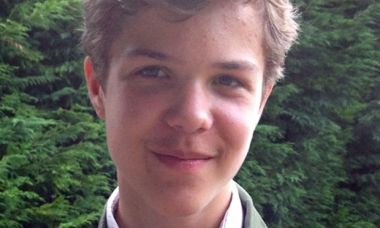Staying safe online: how we can help create a better internet

On January 12 this year, Lewis Daynes was sentenced to life imprisonment for the murder of 14-year-old Breck Bednar. He will serve at least 25 years.
Daynes, only 18 when the crime was committed, had never met Breck before, but groomed him through an online gaming website. Over several months he manipulated him through what seemed to be shared interests and Breck's desire for a career in computers, gradually isolating him from his family and his church. It was all a sham: when he and Breck finally met, Breck was murdered.
What adds another layer of tragedy to an already appalling story is that Breck's mother, Lorin LaFave, had become increasingly uneasy about Daynes' influence. She had made desperate efforts to find out more about him and to alert the authorities. She later found out that Daynes had been accused of sexual assault and rape and that the details were easily available on two databases which the police had failed to check.
Now she's campaigning through the Breck Bednar Memorial Foundation to raise awareness of the dangers of the internet and help keep children and others safe.
She's convinced that the existing resources need to be far more widely known, and that there needs to be a far greater emphasis on keeping safe online – and not just in the case of extreme predators such as Daynes.
"Every child is at risk," she told Christian Today. "There are hacking issues, and on social media things can turn overnight if they put too much information on.
"Cyberbullying is such an issue. One wrong comment and a child can be the laughing-stock of the school. "
She's keen to draw attention to the work of CEOP, the police's Child Exploitation and Online Protection service, which she believes would have been far more effective than local police if she had known about it. "I phoned the police but they didn't hand me on to any agency," she said. "I would talk to people at the school where I worked and they didn't know either. "
And she warns that, based on her own experience, anyone is vulnerable to online grooming. Daynes gave off no warning signals of a sexual or other sinister nature that would be picked up by a young person. "If it can happen to Breck, it can happen to anyone," she says.
The slogan Lorin has developed for the Breck Bednar Foundation is 'Play virtual, live real.'
"I don't want to isolate people from the internet, but I want them to stay safe and alive."
The chief Crown Prosecutor at Daynes' trial, Jenny Hopkins, said: "We have seen cases where young people have been groomed online but it is rare for it to culminate in such a dreadful and violent murder.
"The degree of planning and manipulation by Daynes is shocking and when you consider the young ages of perpetrator and victim, it stands out as one of the most cruel, violent and unusual cases we have dealt with."
Today is Safer Internet Day, whose slogan is "Let's create a better internet together". The movement wants young people, parents, carers, teachers, social workers, law enforcement, companies and policymakers to address the challenges of staying safe online, and says that "Ultimately, a better internet is up to us!"
Breck Bednar's tragedy is an example of how things can go terribly wrong. But Bex Lewis, author of Raising Children in a Digital Age (Lion, £8.99), is keen to stress the positives as well as the negatives of the online environment – her book is subtitled 'Enjoying the best, avoiding the worst'.
Lewis, who is a research fellow in Social Media and Online Learning for the CODEC project at Durham University, is wary about using the terminology of 'virtual' and 'real', preferring the terms 'online' and 'offline'. "There's a sense that online is not real," she tells Christian Today. It's not true: there is a human being at a computer somewhere down the line who is capable of being wounded or offended by what's said by someone they may never have met in person."
Lewis speaks of the 'disinhibiting' effect of online activity: "People forget that they're dealing with humans, not machines and so they don't think before pressing 'send'," she says. However, this can also have its positives: "There can be evangelistic opportunities people haven't had before. They are not afraid to ask silly questions. People see all the negative stuff, but there's often a flip side. We become less defensive and it gives space for conversation."
Ultimately, she believes, we can shape the internet for good or ill. In the case of cyberbullying for instance, there are three parties: the bully, the bullied and the bystander, which is most people. "But if you say it's not OK, it can make a huge difference," she says – we can stand up for the vulnerable online as well as in person.
So she argues that when we go online we should do so in an intentionally Christian way, asking: "What values do we bring? What do the fruits of the Spirit look like? How do we demonstrate grace and respect online?"
In her own case, she asks five questions: would she be happy for God to see what she's written? Her parents? Children she teaches? Would she be happy for a post to feature on the front page of a newspaper? And is it something that her worst enemy could use against her?
The internet is arguably the most astonishing creation of modern times, but like all human creations it has a shadow side. Breck Bednar was lost in the shadows, and his tragic death is a warning to all of us. But the message from campaigners like Lorin LaFave and Bex Lewis is that each of us can play our part in making the internet not just a safer place, but a more wholesome one as well.











